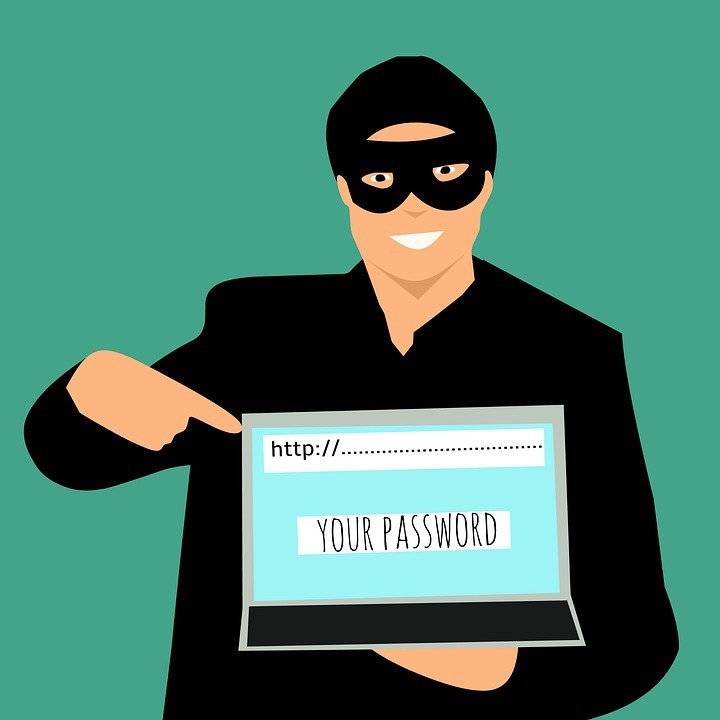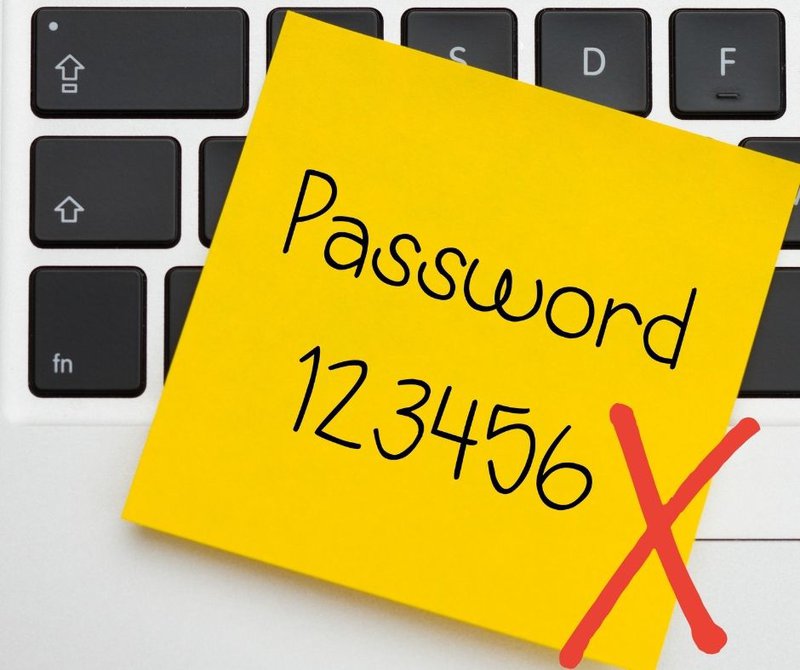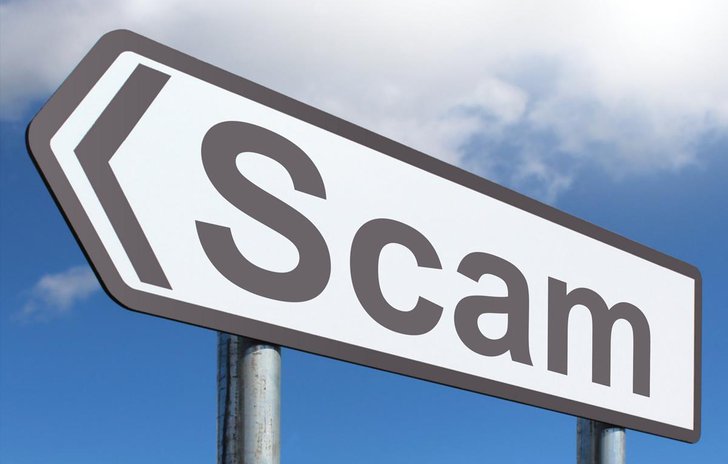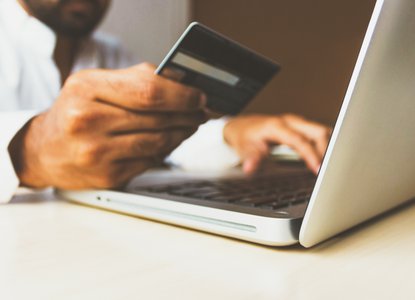Online shopping is booming and has never been easier, with a whopping 87% of all UK households making online purchases in 2020.
But if it’s easier to shop online, that also means it’s easier to get scammed! Fraudsters are becoming more and more sophisticated at tricking people into handing over their money and personal details, so it’s really important to know what the common online scams are and how to avoid them.

It’s a good job we've got Poku Banks on hand to help! He’s a switched on, Gen Z, personal finance influencer, and he's here to share his tips and advice on shopping safely online and how to avoid online scams.
His money-savvy content is seen by thousands on his Instagram, TikTok and YouTube channels as well as the UK press.
We’ll let him do the talking to get you clued up on online shopping safety!
Test your knowledge in our quiz.
What are the common online scams?
There are lots of online scams to look out for, but there are two most common ones that you might come across:
Phishing
Phishing (pronounced fishing) is nothing to do with a relaxing lakeside sport but instead, fishing for your personal data!

Scammers send an email that looks like it’s from a legitimate company (such as your bank), prompting you to click the link and login to your account to fix an issue or pay a bill. But if you click the link you’ll be taken to a fake site and they’ll use your login details to access your real account!
Sometimes you might receive a text instead of an email, directing you to the fake site. Phishing scams work because the emails and sites look very similar to the company they’re impersonating. The email will have the company logo, and sometimes the same branded email design so you might think it’s legit but there are a few things to watch out for that give the game away:
Warning signs for phishing scams:
- Look carefully at the greetings and email copy for typos and generalisations.
A lot of companies use personalisation in their emails, so check if the greeting uses your name or a generic ‘Hi Sir/Madam’. - Before clicking the links in any email, check they direct you to the legitimate site.
On desktop, hover over the link before clicking to see the URL in the bottom left hand corner of your browser. If you’re on mobile, tap on the link and hold it down for a preview pop up to show you where it goes. If it’s not the site it says it is, don’t click it. - Check the recipient’s email address is a legitimate one from the company. The 'from' name might be from the company, but if you tap or click the ‘from’ name you can see the email address it’s come from. If you’re not sure, contact the company via their official website or phone number to check if it was really them.
- Always check the web address and URL bar of any site for 'https://' and the padlock icon before entering your personal details on any website.
If the web address starts with 'http://' this means hackers can access your details and use your accounts. Also look out for any incorrect letters in the web address.
If any of the above details smells fishy to you, delete the email without clicking the links. Don't get 'phished'!
Buying and selling scams
As well as wising up to fake sites you should be careful on second hand selling sites too.
There are plenty of second hand shopping sites online at the moment, including ones on social media like Facebook Marketplace, and these sites are regular hangouts for fake sellers.

Scammers will use stock images or other people’s photos from online shops or listings to post a fake ad and then not send the item once you’ve paid. They might also send you to a fake copycat website to make payment and steal your card details when you enter them.
It’s really important when buying online through any popular second hand selling site or social media to always use the payment platform within the site, such as PayPal, and keep all communications inside the site if it’s one like Vinted. That way you stay protected and if anything does go wrong you can deal with the company to get it resolved.
Related: Check out Thrifty Clair’s top tips for second hand selling sites.
Warning signs for buying and selling scams (online shopping)

- Always check the URL bar of any site for ‘https://’ and the padlock icon.
This is to ensure it’s secure before entering any credit card or personal details. Also look out for any incorrect letters in the web address. - On second hand selling sites, never pay any money by bank transfer to the seller online.
Keep all communications and payments within the official site so you remain protected in case anything goes wrong. - When messaging the seller on second hand selling sites, keep an eye out for any obvious typos or spelling mistakes, and any excuses they make about not being able to meet up to exchange goods.
If it’s a local site and they pressure you into making a quick online payment for them to send in the post, it’s probably a scam. - Always check the reviews from other customers to see if the seller or shop is trustworthy. Are the products as described, and do they arrive on time, if at all?
How to protect yourself from online scams
The first thing to do is to just be aware that scams exist, and be mindful of this when shopping online. Then you can wise up to any scams and let your friends know not to fall for them either.

Here are my top tips to follow and stay safe from online scams:
- Protect your online identity.
Never give out personal details like your date of birth, address, phone number, bank details or card information to anyone. If you receive an email asking you to do so, call the company to check it was really them. - Keep your passwords safe.
Make sure you regularly change your passwords and don’t have the same password for all of your accounts. Make sure they’re hard to guess with special characters, numbers and capitalisations and never share them with anyone or post them online, even in messaging apps. - Use a protected payment method - PayPal or Credit Card.
Never pay by bank transfer when buying online. Payments made via PayPal or a credit card are protected under PayPal Buyer Protection or Section 75. This means you can get a full refund if an eligible order isn’t as described by the seller, doesn’t arrive or if the seller goes bust or doesn’t respond to your phone calls and emails.
Find out more about PayPal Buyer Protection and Section 75 Consumer Credit Act. - If you’re selling online, don’t send the item until payment is received.
Make sure you receive payment confirmation before sending the item and always take photos of the item to prove its condition.
For more information on identity theft visit the Experian website.
How to get your money back after a scam
If the worst does happen and you do get scammed, there are still things you can do to get your money back and report it.
If you think your account details or PIN have been stolen (or if you lose your card), contact your bank immediately to get your cards cancelled.
If you think you've transferred money to a scammer's bank account in the last 24 hours call the police on 101 to report it.
If you've given the fraudster access to your computer remotely, change your passwords and get your device checked out by an IT professional.
Here are some helpful links:
- Citizen's Advice Bureau - What to do if you've been scammed.
- Which - How to get your money back after a scam.
- National Cyber Security Centre - Recovering a hacked account.
For more money management tips visit our Words that Count campaign.
Follow Poku Banks on Instagram, follow him on TikTok and subscribe to his YouTube channel.




